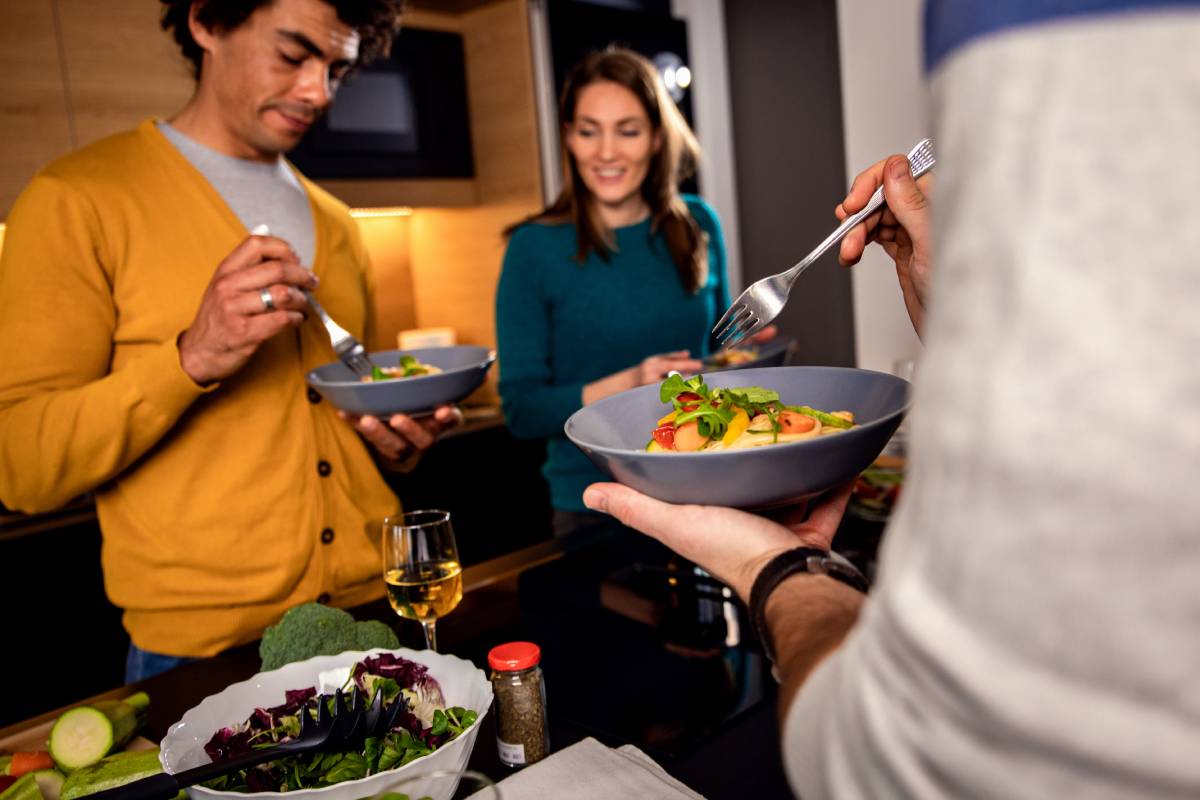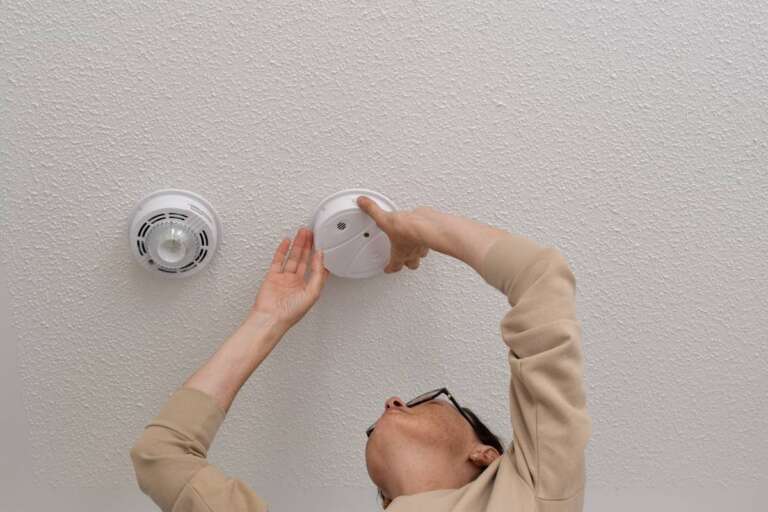Eating well is essential for maintaining good health boosting energy, and enhancing overall well being.
But what exactly makes a meal healthy and how can we incorporate nutritious choices into everyday life without spending hours in the kitchen?
In this guide, we’ll explore the components of a balanced, nutrient rich meal easy ideas for quick healthy dinners, and smart tips for managing late night cravings.
By adopting these practical strategies, you’ll be well on your way to cultivating a wholesome and sustainable eating routine.
Components of a Healthy Meal
Lean Proteins
Include sources like chicken breast turkey fish tofu and legumes. Proteins help build and repair tissues and maintain muscle mass.
Healthy Fats
Not all fats are bad. Incorporate avocados, nuts, seeds, and olive oil. These fats are essential for brain health and can reduce the risk of heart disease.
Complex Carbohydrates
Whole grains like quinoa brown rice and oats provide long lasting energy and essential fiber for digestive health.
Fruits and Vegetables
Aim for a colorful plate. Vegetables like spinach, broccoli, and bell peppers provide vitamins minerals and antioxidants. Fruits such as berries and apples offer natural sweetness and fiber.
Hydration
Don’t forget to drink plenty of water. Staying hydrated helps regulate body temperature keep joints lubricated and remove waste from the body.
A sample healthy meal might look like this:
- Grilled salmon
- Quinoa salad with mixed greens, cucumbers, cherry tomatoes, and olive oil vinaigrette
- Steamed broccoli or roasted sweet potatoes
- A side of fresh fruit, like a handful of blueberries
By balancing these components, your body receives the nutrients it needs to thrive.
What is an Easy Healthy Dinner?
Preparing a healthy dinner doesn’t have to be time consuming or complex. With a bit of planning and creativity, you can whip up a nutritious meal in under 30 minutes. Here are some quick and simple ideas
Stir Fry Delight
- Ingredients: Chicken or tofu mixed vegetables and brown rice or quinoa.
- Instructions: Sauté the protein and veggies in olive oil with garlic ginger and a splash of soy sauce. Serve over your choice of grain.
Veggie Loaded Omelet
- Ingredients: 2-3 eggs spinach mushrooms, tomatoes and a sprinkle of cheese.
- Instructions: Beat the eggs and pour them into a heated greased pan. Add the veggies and cook until firm. Fold and serve with whole grain toast.
Sheet Pan Dinner
- Ingredients: Chicken breasts or salmon sweet potatoes, and your favorite vegetables.
- Instructions: Preheat the oven to 200°C. Arrange the ingredients on a baking sheet drizzle with olive oil, and season with herbs. Bake for 25-30 minutes.
- Choose a table for your home to enjoy your healthy homemade meal!Would you like any other changes to this?
Healthy Tacos
- Ingredients: Whole-grain tortillas, black beans, grilled chicken, avocado, lettuce, and salsa.
- Instructions: Fill the tortillas with your chosen ingredients. Top with salsa and a squeeze of lime.
Greek Salad Bowl
- Ingredients: Mixed greens, cucumbers, cherry tomatoes, red onions, olives, feta cheese, and grilled chicken.
- Instructions: Toss the ingredients together and drizzle with olive oil and lemon dressing.
By keeping staple ingredients on hand and planning ahead, you can create healthy, satisfying dinners without much effort.
Does Eating Late at Night Have Negative Effects?
Late night eating is a common habit for many, but it can have several negative effects on your health. Let’s break down the potential consequences and offer tips for making smarter choices if you find yourself needing a late night snack.
Potential Negative Effects
Weight Gain
Eating late at night especially calorie dense foods, can contribute to weight gain. Your metabolism naturally slows down during the evening making it harder for your body to burn off those calories.
Disrupted Sleep
Consuming heavy meals close to bedtime can cause discomfort and indigestion, leading to poor sleep quality.
Increased Risk of Heart Disease and Diabetes
Studies suggest that irregular eating patterns, including late-night meals, can increase the risk of metabolic issues like insulin resistance.
Acid Reflux and Heartburn
Lying down soon after eating can cause stomach acid to flow back into the esophagus, leading to discomfort.
Tips for Healthier Late Night Eating
If you must eat late at night, consider these tips:
Choose Light Snacks
Opt for foods that are easy to digest, such as a small handful of nuts, a piece of fruit, or a cup of yogurt.
Avoid Sugary and Fatty Foods
These can spike your blood sugar and make it difficult to fall asleep.
Time It Wisely
Try to finish eating at least 2-3 hours before going to bed.
Stay Hydrated
Sometimes, feelings of hunger are actually signs of thirst. Drink water before reaching for a snack.
Mind Portion Sizes
Keep portions small to avoid overloading your digestive system.
Smart Late Night Snack Ideas
- A small banana with peanut butter
- Greek yogurt with a drizzle of honey
- A handful of almonds or walnuts
- Sliced veggies with hummus
- Herbal tea with a light whole-grain cracker
By making thoughtful choices and understanding your body’s needs, you can reduce the negative effects of late night eating and maintain a healthier lifestyle.
Conclusion
Eating healthily doesn’t have to be complicated. Whether you’re looking for the healthiest meal options quick and easy dinners or solutions for late night snacking the key lies in balance and mindful choices.
Prioritizing whole, nutrient dense foods and maintaining regular eating patterns will support your health and well being in the long run.








Leave a Comment